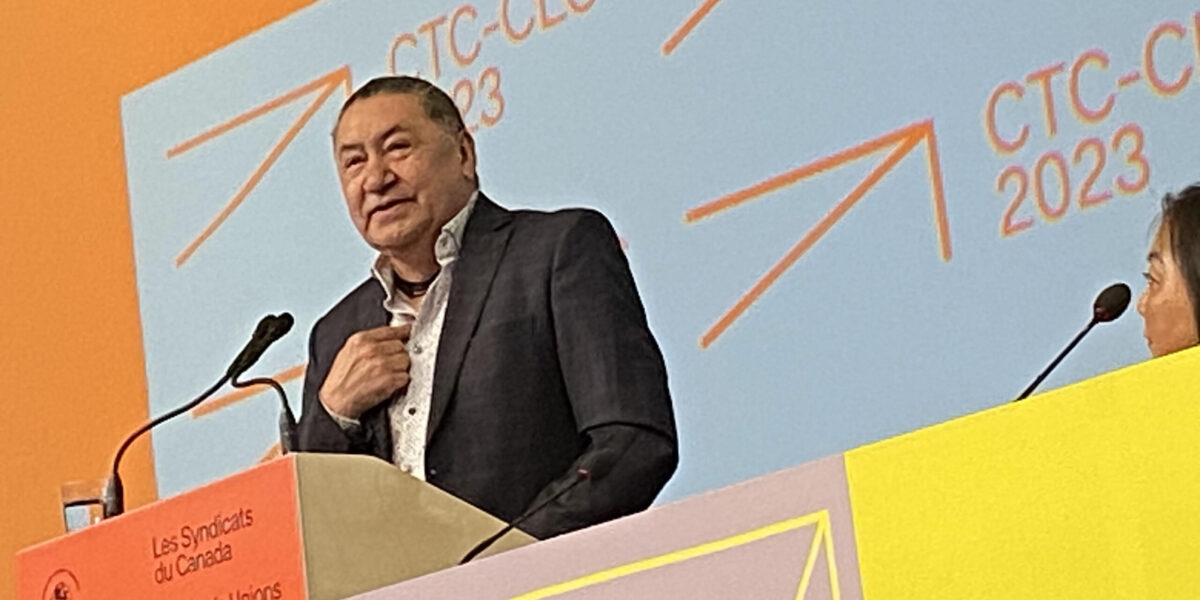After passionate debate, energizing speeches and thorough discussion, delegates at the 30th Canadian Labour Congress (CLC) constitutional convention left Montreal on Friday, May 12 with a shared plan for the next three years of the labour movement.
The CLC, which represents more than three million workers, has passed a number of action plans which provides a sneak peek into the big ticket items the house of labour will be lobbying and organizing around for in the coming years.
On affordability, the organization will be pushing for investments in housing, rent control, stronger public services and higher wages.
The CLC also passed a plan to promote greater employment equity for Indigenous Peoples, conduct an internal review on CLC policies, build relationships with Indigenous organizations and push for policies that uphold calls for Truth and Reconciliation.
Many of these action items will likely be addressed during an Indigenous Lobby Day with the government, which the CLC has committed to organizing in their Indigenous Action Plan.
READ MORE: ‘Team Unite’ re-elected to lead Canadian Labour Congress
Infrastructure and the social safety net will also be an organizing priority for the CLC in coming years. The convention passed a plan to lobby the government to address the “infrastructure deficit.”
Because the convention also passed plans to support care workers and continue the push for a just transition, addressing the infrastructure deficit will likely also include calls to ensure infrastructure is built using green jobs and that the social safety net is rebuilt with an understanding of the importance of care workers.
The CLC also plans to address declining union density by pushing for labour law reforms that bolster union access, encouraging stronger political work and strengthening international solidarity amongst the global working class.
While these action plans often were passed by a fairly large majority, members still spoke up about their concerns regarding them.
Delegates sought significant changes
Most often, delegates would rise in opposition to these plans saying that they did not go far enough.
The CLC has committed to achieving their goals by “pressuring the government,” lobbying and advocating for certain reforms.
Some delegates argued that this would be difficult as the CLC would be going up against corporate lobbyists whose deep pockets provide a fairly large advantage.
Laura Walton, president of the Canadian Union of Public Employees (CUPE)’s Ontario School Board Council of Unions (CUPE-OSBCU), is coming off the tails of worker mobilization that was teetering on the edge of escalating to a general strike in Ontario in the fall of 2022. Although a general strike did not manifest in Ontario, Walton said this does not mean there isn’t one on the horizon.
“I’m not calling anything,” Walton said, laughing. “That would just get Ontario fired up again. But I do hope that workers and communities will stand up.”
During debate on a composite resolution that would see the CLC push to expand the right for workers to strike and take collective action, Walton highlighted how strike rights are only legally protected for unionized workers during the collective bargaining process. Walton told delegates that when laws are unjust, people have a duty to disobey them.
“I truly believe that a general strike is coming,” Walton added in an interview with rabble.ca. “I think we are seeing it not just locally but globally. My daughter lives in Wales. We have been seeing a rotation of massive strikes in the world.”
Walton said that she hoped that this convention will help lay the groundwork for the labour movement to create stronger solidarity within itself.
“We have thousands of leaders and workers here today,” Walton said on the third day of the convention. “I hope workers take the words on the page and bring them home. We need to center workers in this fight. We need ongoing one-on-one conversations. We need to connect with communities and call out the power structures that exist.”



